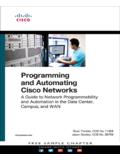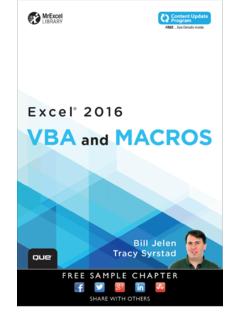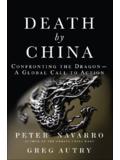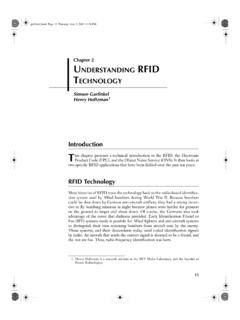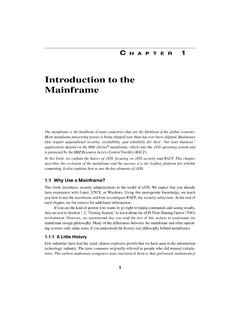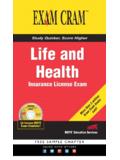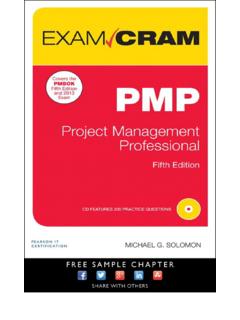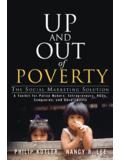Transcription of Experiential Learning: Experience as the Source of ...
1 ExperientiallearningExperience as the Source of learning and DevelopmentSecond 111/13/14 5:06 PMThis page intentionally left blank experientiallearningExperience as the Source of learning and DevelopmentSecond EditionDaviD a. Kolbexperience Based learning Systems, 311/13/14 5:07 PMEditor-in-Chief: Amy NeidlingerExecutive Editor: Jeanne Glasser LevineOperations Specialist: Jodi KemperCover Designer: Chuti PrasertsithManaging Editor: Kristy HartProject Editor: AndyBeasterCopy Editor: Crystal BullenProofreader: Audrey JacobsIndexer: Margaret HentzCompositor: codeMantraManufacturing Buyer: Dan Uhrig 2015 by Pearson Education, Saddle River, New Jersey 07458 For information about buying this title in bulk quantities, or for special sales opportunities (which may include electronic versions; custom cover designs; and content particular to your business, training goals, marketing focus, or branding interests), please contact our corporate sales department at or (800) government sales inquiries, please contact For questions about sales outside the , please contact Company and product names mentioned herein are the trademarks or registered trademarks of their respective rights reserved.
2 No part of this book may be reproduced, in any form or by any means, without permission in writing from the in the United States of AmericaFirst Printing December 2014 ISBN-10: 0-13-389240-9 ISBN-13: 978-0-13-389240-6 Pearson Education Education Australia PTY, Education Singapore, Pte. Education Asia, Education Canada, Educaci n de Mexico, de Pearson Education JapanPearson Education Malaysia, Pte. of Congress Control Number: 411/13/14 5:06 PMFor 511/12/14 12:59 PMThis page intentionally left blank ContentsForeword ..xAbout the Author ..xiiPreface ..xiiiIntroduction ..xviPart I Experience and LearningChapter 1 The Foundations of Contemporary Approaches to Experiential learning ..1 Experiential learning in Higher Education: The Legacy of John Dewey ..4 Experiential learning in Training and Organization Development: The Contributions of Kurt Lewin.
3 8 Jean Piaget and the Cognitive-Development Tradition of Experiential learning ..12 Other Contributions to Experiential learning Theory ..15 Update and Reflections ..19 Foundational Scholars of Experiential learning Theory ..19 Liminal Scholars ..20 Contributions to Experiential learning ..23 Chapter 2 The Process of Experiential learning ..31 Three Models of the Experiential learning Process ..32 Characteristics of Experiential learning ..37 Summary: A Definition of learning ..49 Update and Reflections .. 50 The learning Cycle and the learning Spiral ..50 Understanding the learning Cycle ..50 The learning Spiral .. 711/12/14 12:59 PMviii ContentsPart II The Structure of learning and KnowledgeChapter 3 Structural Foundations of the learning Process ..65 Process and Structure in Experiential learning ..66 The Prehension Dimension-Apprehension Versus Comprehension.
4 69 The Transformation Dimension-Intention and Extension .. 77 Summary ..85 Update and Reflections .. 87 Experiential learning and the Brain ..87 james Zull and the Link between the learning Cycle and Brain Functioning ..88My Brain Made Me Do It? ..94 Chapter 4 Individuality in learning and the Concept of learning Styles ..97 The Scientific Study of Individuality ..98 learning Styles as Possibility-Processing Structures ..100 Assessing Individual learning Styles: The learning Style Inventory ..104 Evidence for the Structure of learning ..111 Characteristics of the Basic learning Styles ..114 Summary and Conclusion ..135 Update and Reflections ..137 Individuality, the Self, and learning Style ..137 Western and Eastern Views of the Self ..138 Experiential learning and the Self ..139 learning Style ..141 Chapter 5 The Structure of Knowledge ..153 Apprehension vs.
5 Comprehension A Dual-Knowledge Theory ..154 The Dialectics of Apprehension and Comprehension .. 159 The Structure of Social Knowledge: World Hypotheses ..164 Summary ..173 Social Knowledge as Living Systems of Inquiry The Relation between the Structure of Knowledge and Fields of Inquiry and Endeavor ..175 Update and Reflections ..186 The Spiral of Knowledge Creation ..186 Personal Characteristics and Ways of Knowing ..188 Knowledge Structures and Disciplinary learning Spaces ..190 The knowledge Structures of Experiential learning .. 811/12/14 12:59 PMixContents Part III learning and DevelopmentChapter 6 The Experiential learning Theory of Development ..197 learning and Development as Transactions between Person and Environment . 198 Differentiation and Integration in Development ..199 Unilinear vs . Multilinear Development ..201 The Experiential learning Theory of Development.
6 205 Consciousness, learning , and Development ..210 Adaptation, Consciousness, and Development ..216 Update and Reflections ..225 Culture and Context ..226 Individual Differences and Multilinear Development ..227 Integration and Advanced Stages of Adult Development ..228 Implications for Experiential learning Theory Development Theory ..234 Chapter 7 learning and Development in Higher Education ..239 Specialized Development and the Process of Accentuation ..242 Undergraduate Student Development in a Technological University ..244 Professional Education and Career Adaptation ..261A Comparative Study of Professional Education in Social Work and Engineering . 263 Managing the learning Process .. 276 Implications for Higher Education ..283 Update and Reflections ..287 Becoming an Experiential Educator ..287 Chapter 8 Lifelong learning and Integrative Development.
7 311 Adaptive Flexibility and Integrative Development ..315On Integrity and Integrative Knowledge ..327 Update and Reflections ..333 Lifelong learning and the learning Way ..333 Bibliography ..355 Index .. 911/12/14 12:59 PMForewordForeword to the First EditionThis is a very special and important book. I say that at the outset because the book is written with such grace and gentleness, with such clarity and directness, that you will know that David Kolb has written an excellent treatise on learning theory, certainly for educators and quite possibly for Educated Persons, whatever that means. But as you read on as I read on, I had to catch my breath every once in a while, wondering if the velocity of my excitement would ever has written a wonderful book, one I ve been waiting for without quite realizing it for a long time.
8 It s a book (I m only guessing here) that he took a very, very long time to write, since it is crafted so carefully and is so deeply nuanced that you are certain that it s been filtered and re-set and redrafted many times, like a precious stone, turned and polished into a lapidary s this excitement? Well, the hyper-ventilation I alluded to above is based on Kolb s achievement in providing the missing link between theory and practice, between the abstract generalization and the concrete instance, between the affective and cognitive domains. By this BIG achievement he demonstrates conclusively and is the first to do so that learning is a social process based on carefully cultivated Experience which chal-lenges every precept and concept of what nowadays passes for teaching. And with this major achievement he knowingly shifts the ecology of learning away from the exclusiv-ity of the classroom (and its companion, the Lecture) to the workplace, the family, the carpool, the community, or wherever we gather to work or play or significance for educators is profound because, among other things, Kolb leads us (again, so gently) away from the traditional concerns of credit hours and calendar time toward competence, working knowledge, and information truly pertinent to jobs, fami-lies, and book is no piece of cake.
9 Despite its graceful aesthetic and illuminating dia-grams, from mandalas to tight-lipped 2 2 tables that management professors love to show on the overhead screen, the author takes us on a fascinating but densely written journey in and around some of the most seminal thinkers who laid the foundations of Experience -based learning great minds such as Dewey, Lewin, and Piaget. Nor does he neglect other auxiliary players like Maslow, Rogers, and Erikson. Aside from creat-ing a framework that removes whatever residual guilt those of us have felt or feel when using Experience -based learning within the formal classroom boundaries, Kolb provides 1011/12/14 12:59 PMxiForeword a thick texture of understanding by building his framework on the wonderful armatures of that trinity: Dewey, Lewin and I say, this is an important book, one the field has been waiting for, worth every ounce of energy it takes to read.
10 But, because of its revolutionary undertones, read it at your own risk. For each reader must take the risk of creating a life of his or her own. When you think about it, you are the thread that holds the events of your life together. That s what Kolb gets us to Bennis, 1925 2014In fond remembrance of Warren, my mentor and 1111/12/14 12:59 PMAbout the AuthorDavid Kolb is the Chairman of Experience Based learning Systems (EBLS), an organiza-tion that he founded in 1980 to advance research and practice on Experiential learning . EBLS conducts basic research on Experiential learning Theory and has developed many Experiential exercises and self-assessment instruments including the latest Kolb learning Style Inventory The EBLS program of research on Experiential learning is ongoing in collaboration with an international network of researchers, practitioners and learning received his BA in psychology, philosophy, and religion at Knox College and his in Social Psychology from Harvard University.
